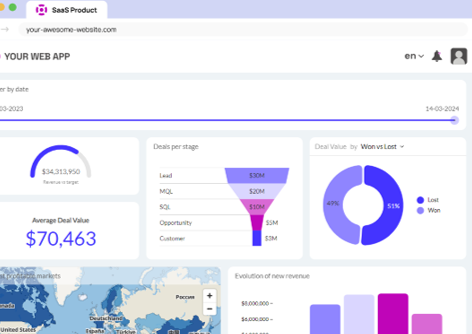Data analytics transforms raw data into meaningful information, enabling informed decision-making. Traditionally, analysts have relied on manual techniques and processes to achieve these outcomes. However, the rise of artificial intelligence offers a transformative shift in how data analytics is conducted, promising enhanced efficiency, accuracy, and scalability. Here’s why integrating AI into data analytics workflows is essential.
Using AI in Data Analysis
AI enhances every stage of the data analytics process, from data collection to visualization. Let’s explore how:
- Data Collection: Collecting quality data is the foundation of effective analytics. AI can streamline this process by automating data gathering from diverse sources, including web tracking, sales records, and communication channels.
- Data Cleaning: Clean data yields reliable results, but manual cleaning is tedious and error-prone. AI automates tasks like identifying outliers, handling missing values, and normalizing datasets, saving time while improving data quality. This ensures that the insights generated are both accurate and actionable.
- Data Analysis: AI models excel at identifying patterns, correlations, and trends in massive datasets. Generative business intelligence (BI) tools are especially noteworthy. By enabling conversational queries, these tools provide instant answers to complex questions without requiring manual reporting. For example, users can ask, “How much revenue did we generate last month?” and receive precise answers in plain language. However, users must remain vigilant about potential biases, as AI learns from its training data.
- Data Visualization: AI-powered tools simplify the creation of interactive dashboards and visualizations, making it easier to present findings. Advanced platforms allow users to generate charts and graphs through simple prompts, enhancing user experience and enabling deeper data exploration.
Can AI Replace Data Scientists?
Despite AI’s capabilities, it’s unlikely to replace data scientists. The sheer volume of data being generated—90% of the world’s data was created in the past two years—ensures a growing demand for human expertise. Data scientists remain vital for interpreting AI-driven insights and addressing challenges like algorithmic bias. Companies investing in AI training empower their teams to harness these tools effectively, ensuring continued innovation and competitiveness.
AI in Data Analytics: Industry Examples
Businesses are already leveraging AI to optimize their analytics in diverse ways. PayPal, for instance, uses AI tools like Simility to address fraud detection. By analyzing transaction patterns, the system flags potentially fraudulent activities for further investigation, significantly reducing the need for manual intervention. Similarly, Amazon employs AI-powered recommendation systems to enhance customer personalization. By analyzing data points such as browsing history and purchase patterns, Amazon tailors its homepage dynamically to individual preferences, boosting engagement and sales.

Leading AI Analytics Tools
Several advanced tools are driving the adoption of AI in data analytics.
Luzmo, an AI-powered business intelligence platform, enables rapid deployment of data visualizations for SaaS brands. It simplifies the process of creating client-facing applications and supports better decision-making through AI-driven recommendations.
Another notable tool, Team-GPT, facilitates collaboration within data science teams. By integrating features for model development, data cleaning, and insight generation, Team-GPT has helped many clients achieve significant productivity gains in predictive modeling and other tasks.
Conclusion
AI’s integration into data analytics is not just a trend but a necessity for organizations aiming to remain competitive in a data-driven world. By automating repetitive tasks, enhancing accuracy, and enabling real-time insights, AI empowers businesses to unlock the full potential of their data while complementing the expertise of human analysts.
